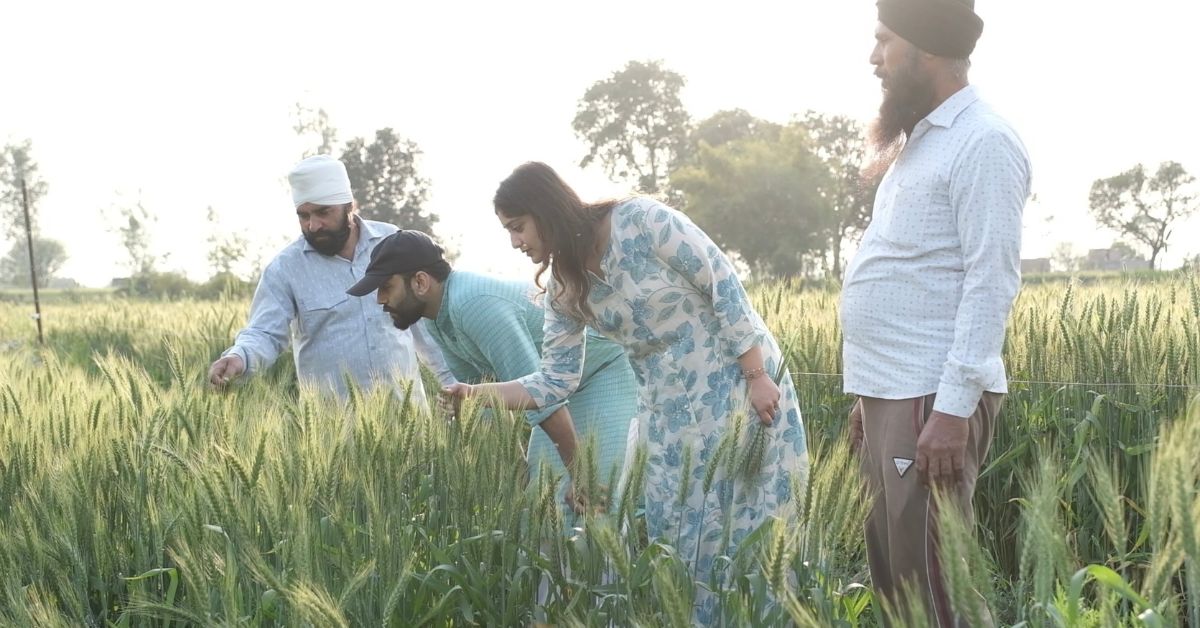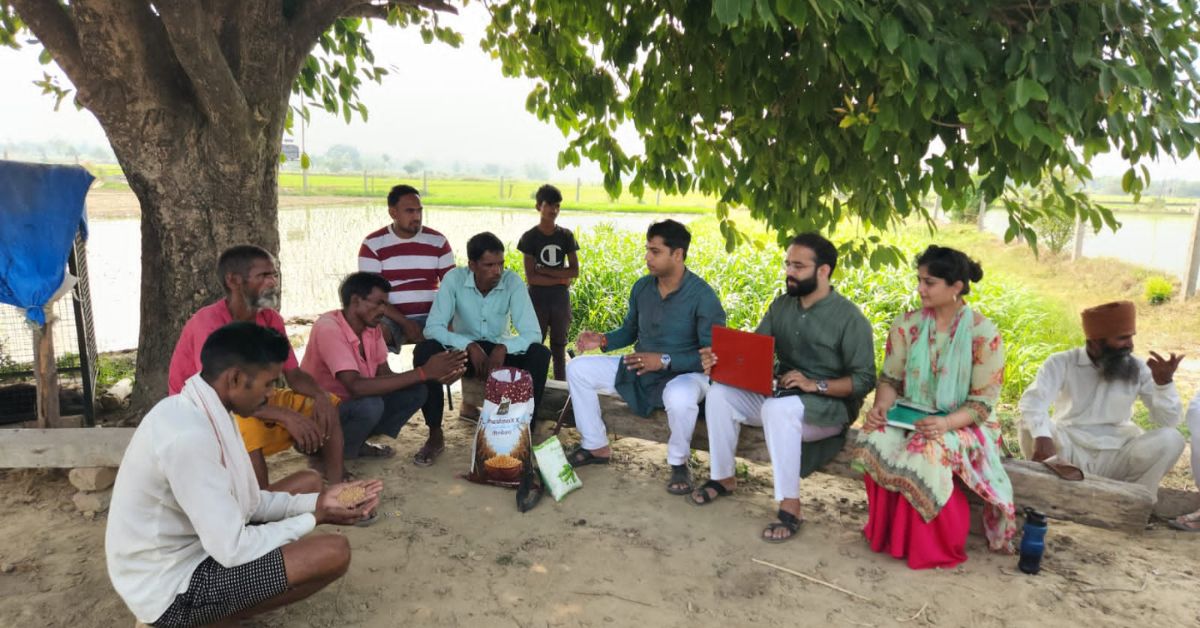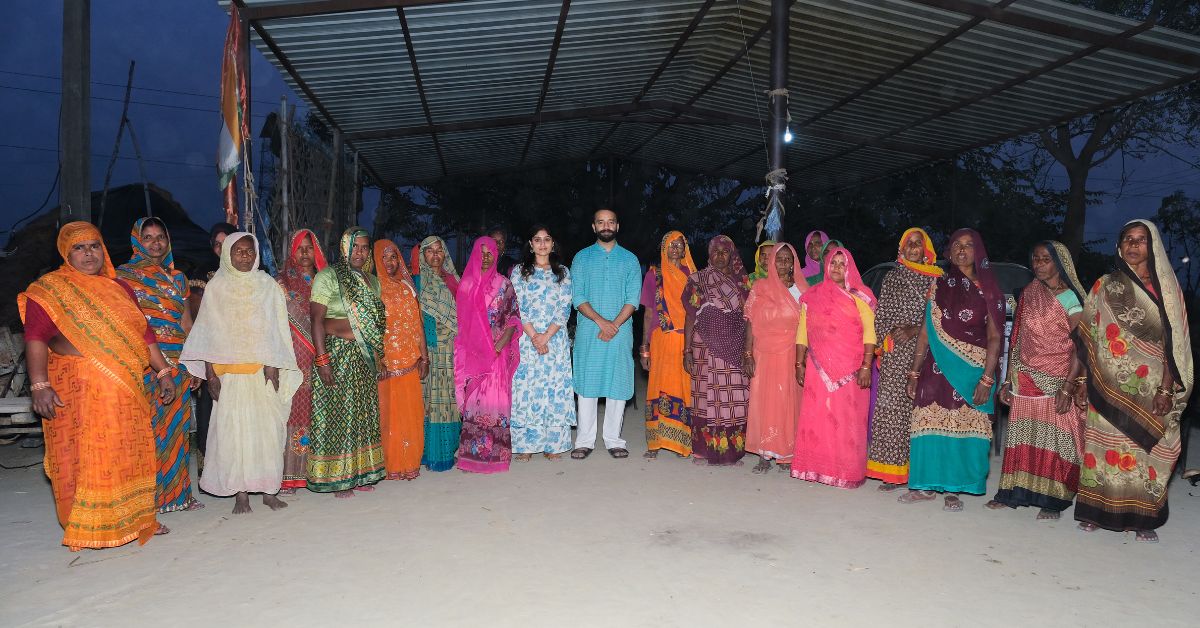Until three years back, Sukhwinder Singh had not heard about biofortified seeds – seeds that have been bred to have higher levels of certain nutrients like iron and zinc. The farmer has been successfully growing wheat on his 5.5-acre landholding using these seeds.
His decision to switch to biofortified seeds was prompted by his concerns over the rampant use of chemical fertilisers, which not only harm the environment but also pose health risks to consumers. He chose to invest in biofortified seeds, which are rich in zinc.
One of the most remarkable outcomes of Sukhwinder’s adoption of biofortified seeds is the improvement in the quality of the produce. “My children find the roti (chapati) made from the wheat grown with biofortified seeds tastier. This has not only enhanced the taste of my produce but also ensured that my children consume safe and nutritious food,” says the 49-year-old resident of Bambhera village, Sitapur, Uttar Pradesh.

The use of biofortified seeds has also reduced his input costs by reducing his dependency on urea fertiliser. “Earlier, I had to add three rags of urea on one acre of land, now I only have to add as little as half a rag,” he adds.
Sukhwinder points out, “While the yield per acre may be slightly lower compared to conventional seeds, the overall benefits, including reduced input costs and improved quality, far outweigh any minor differences in productivity. Besides, I am earning Rs 2,600 per quintal instead of Rs 2,000 rates for regular wheat.”
Like Sukhwinder, at least 15,000 small-landholding farmers in Uttar Pradesh are reaping the benefits of biofortified seeds, thanks to Aishwarya and Prateek Rastogi, who are promoting innovative and eco-friendly farming methods that benefit both farmers and consumers alike.
Is the food we eat daily nutritious?
In 2016, after completing higher studies and gaining entrepreneurship training at IIM Ahmedabad, Prateek felt a strong calling towards uplifting the agricultural sector in his home state.
Despite being advised to venture into more developed states like Maharashtra and Gujarat for ease of business, he strived to focus on central and eastern Uttar Pradesh, regions that still required substantial advancement in agriculture.
After working for the corporate world for a year, he quit his job and moved to his ancestral village in Sitapur along with his wife Aishwarya, who is an alumna of IHM Bombay where she studied food sciences and nutrition.
The couple moved out to live out of an agri-warehouse. This is where they learnt more about the challenges faced by farmers.
“Rural visits are close to our hearts. We love spending time in villages, cooking by a desi chulha (firewood stove), and sharing stories with farmers. I also grew up eating farm produce that was sent to us from our village to our home in Lucknow. These experiences fuel our passion for our startup and our commitment to improving the lives of the farming community,” he says.
Highlighting the challenges he observed in the agriculture sector, he says, “While farmers toil day and night to grow food, it lacks sufficient nutritional content. India faces severe micronutrient deficiencies due to essential nutrients lacking in crop outputs, leading to health issues like anaemia and stunted growth.”

According to the National Family Health Survey 5 (2019-21), 57 percent of women aged 15-49 in India are anaemic whereas 35.5 percent of children under five years of age are stunted.
Aishwarya says, “There’s untapped power in the food we consume daily — especially when a large chunk of our diet is roti or rice. Looking at the anaemia and stunting data of our country, it is clear that we do not get enough nutrients from the food we eat. I strongly believe that nutrition shouldn’t be a luxury but a right for us all Indians. It’s something everyone deserves access to, and cannot be a privilege for a few.”
Realising there is a need to improve crop nutrition naturally, the couple decided to fortify seeds of crops such as maize, paddy, wheat, and finger millets, with essential nutrients like zinc, iron, manganese, boron, and copper.
This understanding led to the birth of Greenday in January 2020, aiming to bring systemic innovation and enhance crop nutrition.
Improving nutritional value through biofortification
The vision of Greenday, Prateek says, was simple yet impactful. “We wanted to improve the nutritional quality of crops while empowering farmers economically. By encouraging the shift from traditional seeds to biofortified seeds, farmers were not only able to enhance their income through premium pricing but also play a crucial role in addressing widespread issues of malnutrition in the country,” he adds.
The biofortified seeds, developed through crossbreeding for nutritional benefits and climate resilience, showed promising results in increasing essential nutrient levels by up to 80 percent.
“By introducing zinc soil bacteria to enrich the soil ecosystem, the seeds enabled plants to absorb more nutrients, ultimately leading to significantly higher nutritional content in the harvested crops,” he shares.

Explaining further, Prateek says, “For instance, we found that the baseline levels of zinc in the traditional variety of wheat is around 28 parts per million whereas, it is 45 parts per million in the newer bio fortified seeds. We also add a zinc soil bacteria to the soil which helps mobilise the naturally available zinc and bring it to the roots. This increases zinc base levels to 50-55 parts per million – an increment of about 80 percent.”
“However, every seed will have its own benefits and drawbacks. These seeds give almost 80 percent more nutritional value but farmers may have to take a dip of 4 to 5 percent in yield. But the premium rates for such produce covers up the yield loss,” he points out.
Through collaborations with thousands of farmers across regions like Gorakhpur, Basti, Gonda, Barabanki, and others, the initiative not only promoted the adoption of biofortified seeds but also provided holistic services ranging from soil analysis to crop selection in order to boost crop nutrient content naturally.
Looking at the impact created by their startup, Aishwarya says, “After spending 2.5 years in Sitapur closely working with farmers, I saw the potential in something as small as a seed. We wanted to create a massive impact by working for our farmers. Seeing their dedication first hand has been the most rewarding experience. Their hard work fuels our passion to turn our brand into a movement that not only improves health but also supports livelihoods,” she adds.
Edited by Padmashree Pande. All photos: Greenday.
